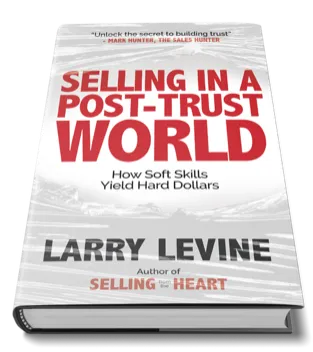
A CEOs Guide to Fostering a Culture of Growth and Success.
"Cultures of Growth value transparency and share information (rather than hoarding it to get ahead of others), and when people make mistakes in these organizations, they accept responsibility (instead of pointing fingers)."
Mary C. Murphy
Cultures of growth emphasize transparency, healthy accountability, and collaboration, fostering environments where information is shared openly, and mistakes are treated as learning opportunities rather than occasions for blame.
I encourage leaders to deeply reflect upon the paragraph above.
Cultures of growth create environments where collaboration is valued over internal competition.
It's all about:
Shared goals over individual achievements
Knowledge sharing instead of information hoarding
Team success celebrated alongside personal growth
Transparency builds trust and enhances accountability within organizations. Leaders who prioritize open communication create environments where employees feel respected and valued.
Growth cultures view mistakes as opportunities for learning rather than failures. This mindset encourages risk-taking, innovation, and continuous improvement.
By integrating transparency and accountability as part of their culture, organizations create resiliency that drive innovation, trust, and long-term sustainable growth.
At the core of long-term success, whether in sales, leadership, or business, is a commitment to personal growth.
A company or sales team that fosters a culture of personal growth doesn’t just create better professionals, it creates better human beings, who, in turn, build genuine trust with clients and with their teams.
Let's Start Our Journey Together
As a CEO, you set the tone for your organization. Your leadership shapes the culture, determines the vision, and influences every aspect of business success, including sales growth.
Sales success isn’t just about better tactics, it’s about better people.
A high-growth sales organization isn’t built on pressure, quotas, or outdated strategies. It’s built on personal growth, on fostering a culture where leaders and employees alike are continuously developing, learning, and evolving.
Why does this matter?
Because in today’s trust-depleted marketplace, sales are won through authenticity, relationships, and adding meaningful value. And none of that happens without an organization-wide commitment to growth.
Too many companies focus on short-term sales tactics, ignoring the fact that authentic relationships drive long-term success. Growth starts from within.
During our time together, you will learn how to embed personal growth into your company’s DNA, helping your sales team thrive while building a high-trust, high-performance culture.
Why Personal Growth Drives Sales Growth
There are those CEOs who look at sales through the lens of strategy and execution.
While important, the real competitive advantage comes from the growth and development of your people.
Give thought to the following:
People buy from people they trust. A culture of growth helps your team develop authenticity, emotional intelligence, and credibility. This is the real differentiators in sales today.
A growth mindset fuels innovation. When salespeople are encouraged to grow personally, they bring fresh perspectives to sales challenges, leading to smarter strategies and new opportunities.
Confidence and competence go hand in hand. Personal development builds self-awareness and resilience, enabling salespeople to handle rejection, overcome objections, and thrive in challenging markets.
High-growth cultures attract and retain top talent. The best salespeople want more than a paycheck, they want an environment where they can develop, be challenged, and grow into better versions of themselves.
"When a team stops learning, they stop growing. And when they stop growing, they stop winning."
Darrell Amy, Revenue Growth Engine
Let’s get into the actionable steps you can take as a CEO to embed personal growth into your sales culture.
The CEO’s Playbook: Building a Culture of Personal Growth to Drive Sales
1. Model the Growth Mindset
As a CEO, your team looks to you for direction. If you want a culture of personal growth, it must start with you.
Be a Visible Learner – Read books, attend leadership development sessions, and share what you’re learning with your team.
Embrace Vulnerability – Admit when you don’t have all the answers. Create a culture where continuous learning is valued over perfection.
Seek Feedback Regularly – Show your team that growth isn’t just for them, it’s for everyone, including you.
People don’t grow in environments where they feel they must put on a mask.
Your action item: Host a monthly Growth Reflection session where team members share what they’ve learned, mistakes they’ve made, and how they’re growing.
"The leader who stops learning will soon lead a team that stops growing."
John C. Maxwell
2. Integrate Personal Growth into Sales Development
Sales training often focuses on techniques, but what about the person behind the technique?
To create a true growth-driven sales culture, focus on developing the individual, not just the skillset.
Encourage Self-Reflection – Have every sales person answer: What personal skills do I need to develop to better connect with clients? Why do you do what you do? What motivates you beyond the paycheck?
Make Emotional Intelligence a Core Competency – Self-awareness, active listening, and empathy should be just as important as closing techniques.
Pair Sales Goals with Growth Goals – Every salespersons quota should be matched with a personal development goal.
Your action item: Create a Sales Growth Journal for your team where they track both sales wins and personal growth reflections.
Sales isn’t just about what you sell. It’s about who you are when you sell.

Subscribe to the Culture from the Heart Newsletter, click here.
3. Build a Learning Culture That Drives Revenue
Growth isn’t an event; it’s a daily practice. Consistency is the secret ingredient that separates the great from the average.
Companies that prioritize learning and self-improvement outperform those that don’t. A growth culture keeps sales teams engaged, motivated, and adaptable.
Morning Growth Rituals - Encourage your salespeople to start their day with personal development. Provide a curated list of growth-focused resources for your sales team. Such as books, podcasts, online journals.
Encourage Peer Learning – Hold monthly mastermind sessions where salespeople share personal growth insights.
Make Coaching Part of the Culture – Regular sales training should include mindset coaching, not just sales techniques.
Your action item: Start a Quarterly Sales Book Club. Choose books on mindset, leadership, and sales psychology to spark personal and professional development.
Great sales professionals don’t just close deals—they open minds and transform lives.
4. Reward Growth, Not Just Results
Unfortunately, and all too often, the only thing that gets rewarded is the number on the board. If you want a culture of personal growth, you need to celebrate learning and development too.
Recognize Personal Development Wins – Acknowledge salespeople who step outside their comfort zones to grow.
Promote a "Fail Forward" Culture – Encourage risk-taking and learning from mistakes, rather than punishing failure.
Tie Career Advancement to Personal Growth – Make leadership promotions dependent on both performance and personal development efforts.
Your action item: Introduce a Growth Champion award to recognize those individuals who consistently demonstrate a commitment to personal development.
"A company that grows its people will never struggle to grow its revenue."
Darrell Amy, Revenue Growth Engine
5. Develop Leaders Who Develop Others
A culture of growth doesn’t happen in isolation, it spreads through strong leadership.
At the heart of personal growth is the idea that we grow not just for ourselves, but so we can serve others more effectively.
Mentorship is Non-Negotiable – Every senior sales leader should mentor at least one junior salesperson.
Hold Quarterly Growth Check-Ins – Encourage leadership to ask: What are you learning? How are you growing?
Foster a “Give First” Mentality - Encourage your team to help others grow without expecting immediate returns.
As the CEO, it's your ability to coach for the future, not just the present. You must help your team develop their skills beyond their current roles.
Your action item: Launch a Sales Mentorship Program where top performers guide new salespeople on both professional and personal growth.
Your legacy as a leader isn’t just the revenue you generate—it’s the leaders you create.
Growth-Driven CEOs Create Growth-Driven Companies
If you want sustainable sales growth, start by investing in your people.
A culture of personal growth is not just a feel-good initiative, it’s a strategic necessity. It creates salespeople who are:
More confident and self-aware
Better at building trust with clients
More engaged and driven
Loyal to your organization
Your growth challenge: What’s one action step you’ll take this month to embed personal growth into your sales culture?
Sales growth isn’t about pushing harder, it’s about developing better people who sell with authenticity and heart.
Originally published on Larry Levine's LinkedIn.




